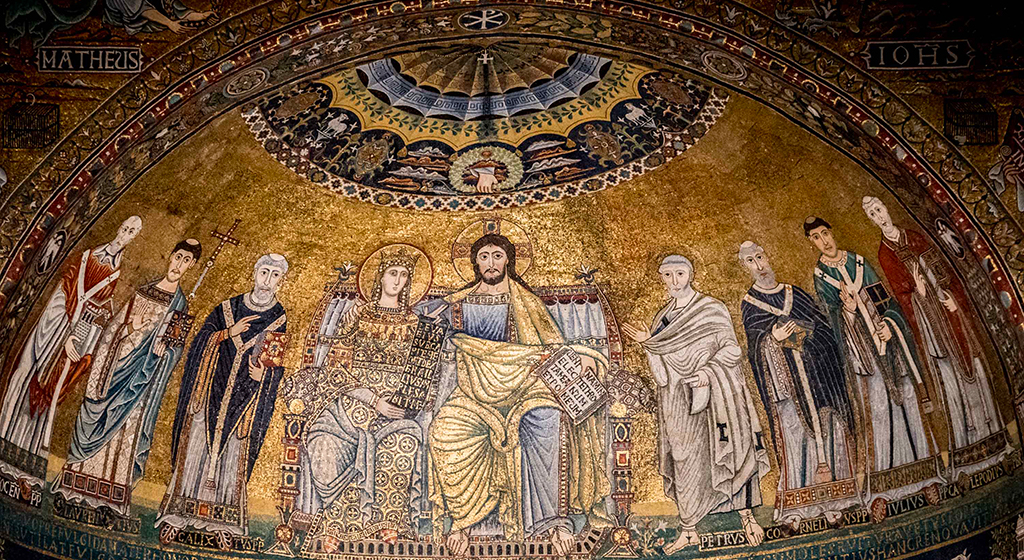Memory of the Church
Reading of the Word of God
Alleluia, alleluia, alleluia
I am the good shepherd,
my sheep listen to my voice,
and they become
one flock and one fold.
.
Alleluia, alleluia, alleluia
Numbers 20,1-13
The Israelites, the whole community, arrived in the first month at the desert of Zin. The people settled at Kadesh. There Miriam died and was buried. There was no water for the community, so they banded together against Moses and Aaron. The people laid the blame on Moses. 'We would rather have died', they said, 'as our brothers died before Yahweh! Why have you brought Yahweh's community into this desert, for us and our livestock to die here? Why did you lead us out of Egypt, only to bring us to this wretched place? It is a place unfit for sowing, it has no figs, no vines, no pomegranates, and there is not even water to drink!' Leaving the assembly, Moses and Aaron went to the entrance of the Tent of Meeting. They threw themselves on their faces, and the glory of Yahweh appeared to them. Yahweh then spoke to Moses and said, 'Take the branch and call the community together, you and your brother Aaron. Then, in full view of them, order this rock to release its water. You will release water from the rock for them and provide drink for the community and their livestock.' Moses took up the branch from before Yahweh, as he had directed him. Moses and Aaron then called the assembly together in front of the rock. He then said to them, 'Listen now, you rebels. Shall we make water gush from this rock for you?' Moses then raised his hand and struck the rock twice with the branch; water gushed out in abundance, and the community and their livestock drank. Yahweh then said to Moses and Aaron, 'Because you did not believe that I could assert my holiness before the Israelites' eyes, you will not lead this assembly into the country which I am giving them.' These were the Waters of Meribah, where the Israelites laid the blame on Yahweh and where, by their means, he asserted his holiness.
Alleluia, alleluia, alleluia
I give you a new commandment,
that you love one another.
Alleluia, alleluia, alleluia
This passage from Numbers brings us to the crossing of the desert towards the promised land. That desert is like everyday life even for women and men of faith. Difficulties and obstacles are never lacking. That day there was lack of water, an indispensable element (it is not necessary to explain what it means walking in the desert without water). Here it is said, unlike other texts, that the "people quarrelled with Moses." In truth, the Hebrew word does not want to indicate what happens to all of us, that is to argue with someone. It is a questioning of an act of God that is considered profoundly unjust, that of having freed a people and then let them die! It is a serious accusation, the result of a continuous misunderstanding by Israel and the inability to rely on the Lord and his protection. Often, in difficult moments of life, the Lord is accused of being responsible of what happens to us, forgetting the many benefits we have received. Thus, we close in our own sense of justice, recriminations and the affirmation of our own rights, without the humility of being helped in need. But the Lord also hears the lamentation and never tires of answering even to a people that believes to be the object of injustice in a very concrete way. In this case, God causes water to flow from the rock.
Finally, in this reading, we learn that Moses and Aaron will not experience the joy of introducing the people at assembly into the promised land as they too had doubted God's merciful presence. Even because of this, they were not allowed to see the land they so desired.
